There was a lot working against Vampire: The Masquerade – Bloodlines when it launched on this day back in 2004. Nobody wants to launch up against a game as hotly anticipated as Half-Life 2, let alone be pushed out half-finished due to a bizarre corporate mandate to launch on the same day as said game — which, incidentally, used the same brand-new engine as V:TM-B was built in, but as proprietary in-house technology rather than via a third-party licence, and so very much getting the better end of the deal.
Ultimately, looking back on the launch debacle that surrounded Bloodlines just shows you how radically the games industry has changed in the past 20 years. If the same scenario were to play out today, you’d probably see the publishers overseeing a video game tie-in to a relatively niche TTRPG doing everything in their power to avoid launching on the same day as such an obvious GOTY candidate. In fact, the launch would likely be pushed back several months to minimise clashing over the audience’s attentions, which ironically would have been exactly what Bloodlines’ developer Troika Games wanted and needed but never got.
But there’s also the fact that Bloodlines managed to gain a fair amount of popularity quite quickly despite its underbaked launch state. Even before it gained the cult classic status it’s best known for today, this wasn’t a game that required reassessment from a later generation of players, and its reputation initially grew out of perseverance from the fans who were already there at the time.
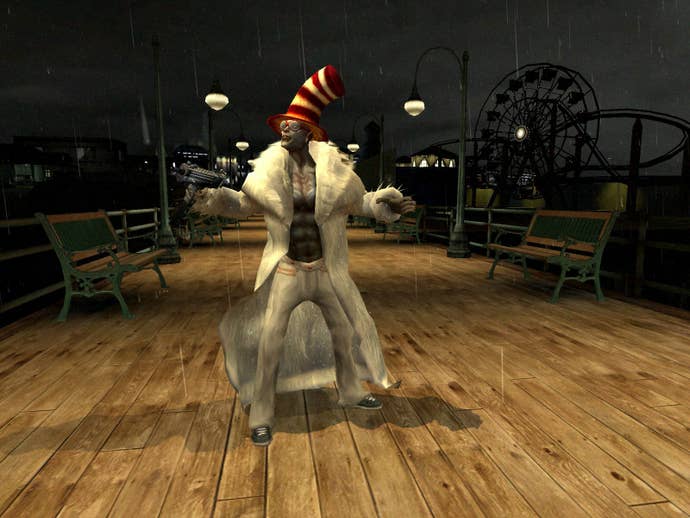
Again, that’s something that wouldn’t happen in 2024, when a theoretically decent game with performance issues not patched out on Day 1 is more often than not dismissed as “mid” and consigned to the status of a minor historical footnote, as players turn their attentions to any of the dozens of other games that launched that week. And honestly, who can blame them?
The world of two decades ago was quite different: fewer games doing the rounds, and slower access to the games there were (digital distribution was still in its infancy, remember: Steam was a mere year old at this point, and still only sold games made directly by Valve) meant that something like Bloodlines could still emerge with a respectable 80% average critical score, rapidly become something of a darling among players, and even pick up a modest handful of end-of-year awards despite launching in mid-November on top of everything else that it had to contend with.
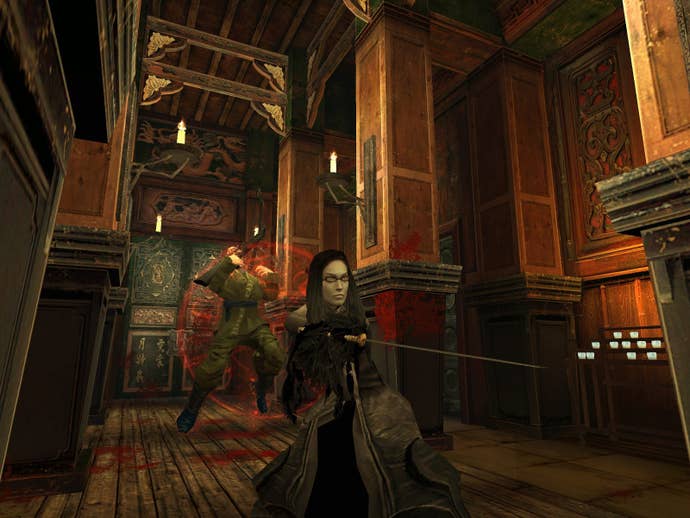
Sadly, the purgatorial status of the Bloodlines IP continues to this day. Given that Troika Games folded not long after Bloodlines’ launch, most fans knew better than to expect a sequel. So when one was announced in 2019 — with an initial release window that would broadly coincide with the original game’s 15th anniversary, but also risked clashing with the then-intended launch date for the hotly-awaited, GOTY-tipped Cyberpunk 2077 — the pleasant surprise was tempered by nervous jokes about generational curses.
Five years and numerous delays later, of course, Bloodlines 2 still hasn’t launched — and has changed almost beyond recognition, morphing from a closely-moulded direct sequel developed by Hardsuit Labs to a looser spiritual successor rebuilt from the ground up by The Chinese Room. By the sounds of things, 2025 might just be the year we finally get our hands on V:TM-B2, but it’s fair to say that those half-joking predictions of a troubled production proved more accurate than even the prognosticators themselves anticipated.
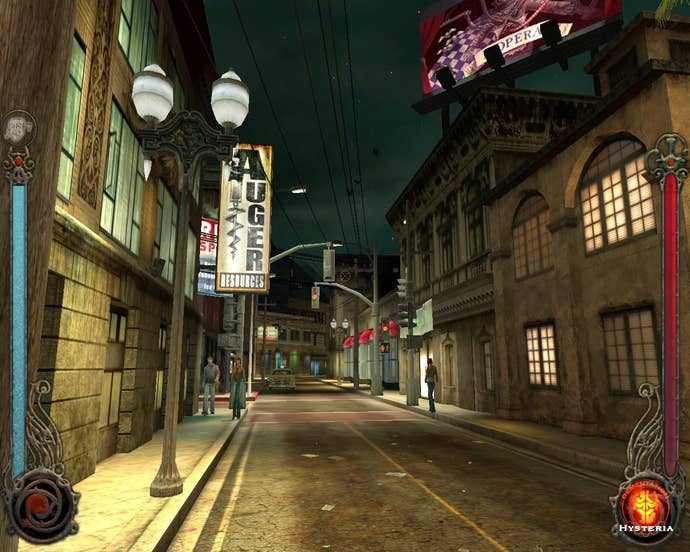
In truth, though — and speaking from the heart here, as someone who still considers Vampire: The Masquerade – Bloodlines quite possibly their single favourite video game of all time even two decades later — I’m not that worried about Bloodlines 2.
Not because it’s better viewed in the context of the fact that there have actually been 11 official VTM video games (plus numerous sanctioned VTM game jam titles) released in the past two decades that weren’t Bloodlines sequels, but which did demonstrate that the IP is versatile enough to support a steady supply of good games, even if they mostly don’t have the scope and reach to set the world on fire. And not because I have faith in The Chinese Room to deliver a decent World of Darkness-flavoured Dishonored-style imsim that bears little relation to the original but stands up well enough on its own — although, for what it’s worth, I do actually think that’ll be the case.
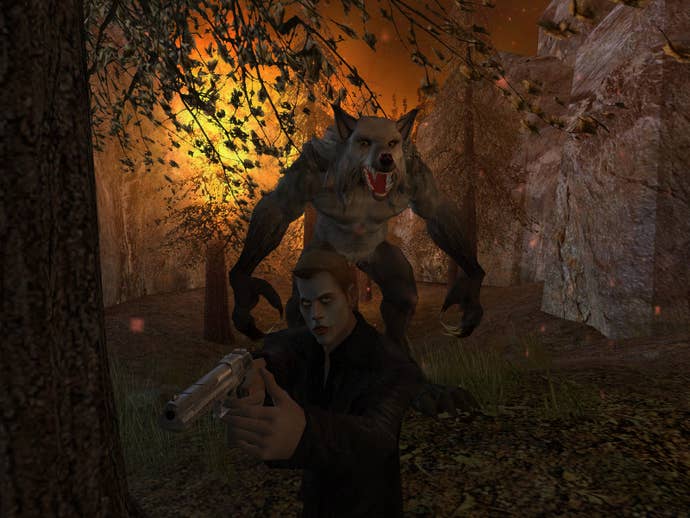
I’ve mentioned this already in our end-of-year video round-ups for 2023, but last year’s resounding Game of the Year winner Baldur’s Gate 3 has in many ways already scratched my itch for a modern Vampire: The Masquerade follow-up. As a deeply engrossing RPG based on a popular tabletop setting, made exceptional by the strength of its writing, world-building, and performances (and even with a hot-yet-troubled vampire in a key role), BG3 already proved that the V:TM-B formula could be one of the most winning concepts in video games if a developer was given the time, space, and — crucially — funding and resources needed to make a game that lived up to all that truly excellent potential.
Viewed through this more holistic lens, Bloodlines’ legacy has already come full circle. A throwback title in the same vein became the first video game ever to win all five major GOTY awards; if ever a point could be comprehensively proven in a field as subjective as art and entertainment, this one has been now. Bloodlines 2 can be what it needs to be — whether it ends up being beloved, reviled, or just quickly forgotten — and at the end of the day, the original Bloodlines will still be that messy but wonderful cult classic that set the bar for RPG storytelling in video games.
fbq('init', '1749355691872662');
fbq('track', 'PageView'); window.facebookPixelsDone = true;
window.dispatchEvent(new Event('BrockmanFacebookPixelsEnabled')); }
window.addEventListener('BrockmanTargetingCookiesAllowed', appendFacebookPixels);
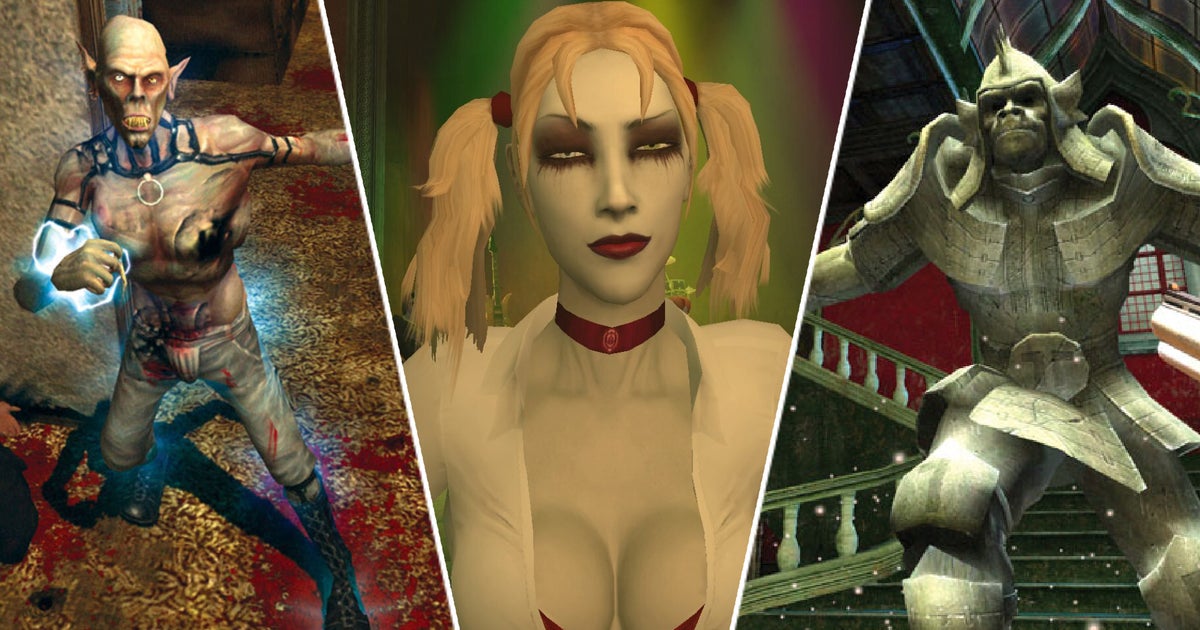
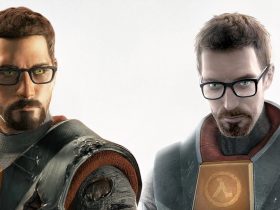
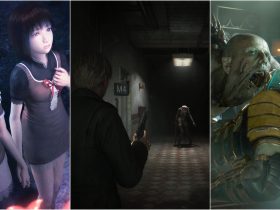


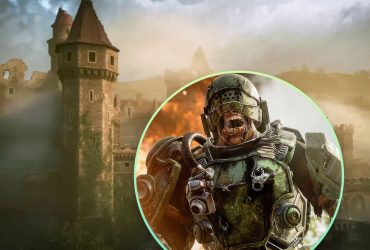
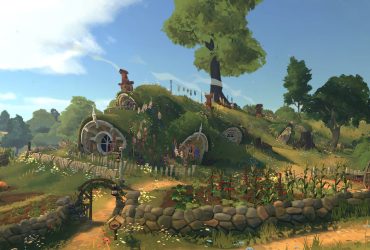

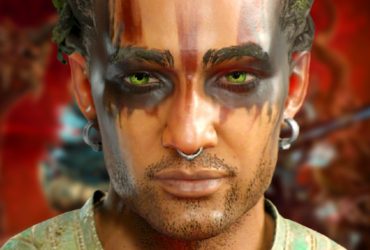


Leave a Reply